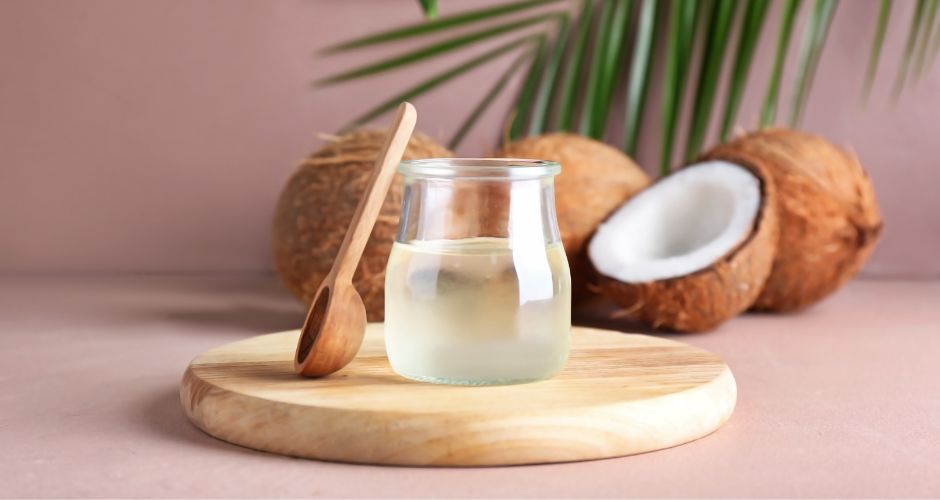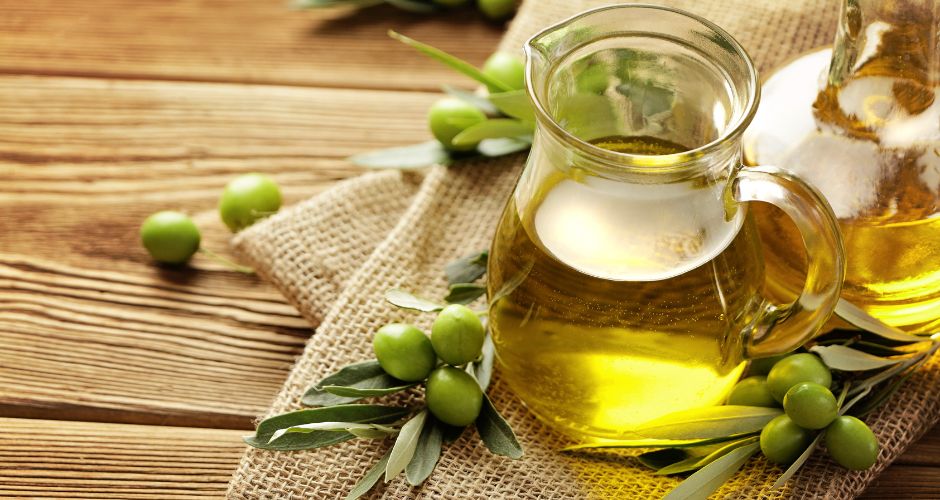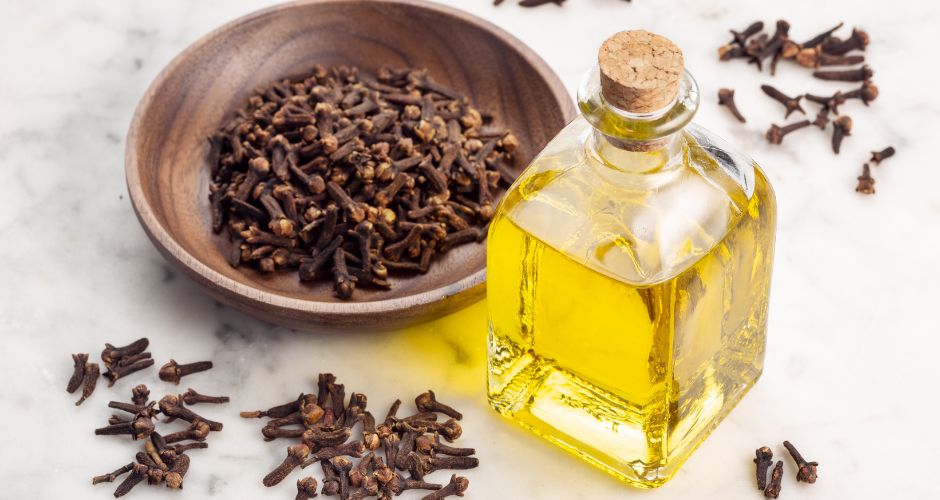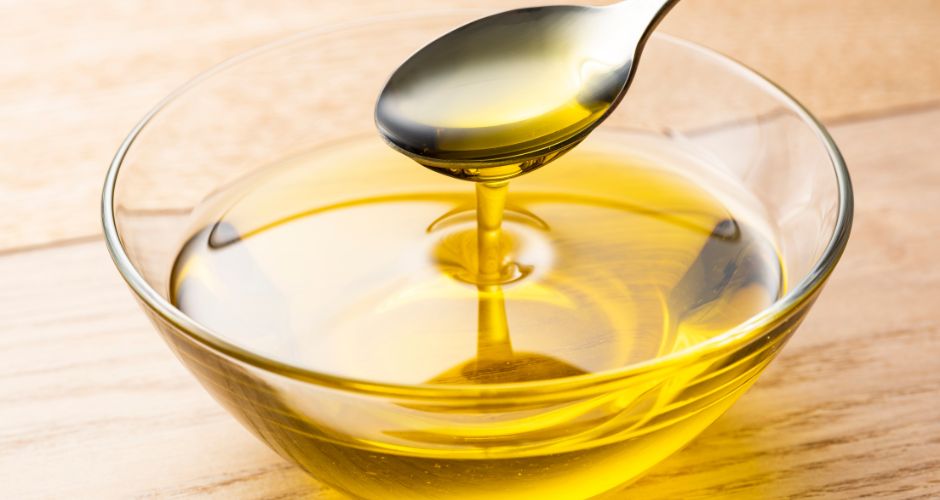7 Best Oil To Use For Oil Pulling

You’ve used all the newest dental care products, brushed and flossed religiously, but what if there’s one more piece missing from the puzzle of perfect oral health? It’s time to dive into the world of oil pulling and go on a voyage of exploration. Have you ever questioned whether dental health extends beyond what a toothbrush can clean? Get ready to discover the top seven oils that will revolutionize your oral hygiene regimen and leave you with a healthier, brighter smile.
What Is Oil Pulling?
Oil pulling, sometimes called “kavala” or “gundusha,” is an age-old Ayurvedic procedure in which you swish oil around in your mouth for a predetermined amount of time, usually 15 to 20 minutes. By removing toxins, pollutants, and dangerous germs from the mouth, it improves dental health. It’s an easy procedure that works with several types of edible oils.
Choosing the Best Oil to Use for Oil Pulling
Not all oils are born equal when it comes to oil pulling. Some oils are more effective and offer additional benefits. Here are the seven best oil to use for oil pulling, each with its unique advantages:
☑ Coconut Oil

When it comes to oil pulling, one name often shines brighter than the rest: coconut oil. This natural elixir has gained immense popularity for its versatility and comprehensive health benefits.
Why Coconut Oil?
Coconut oil, extracted from the meat of mature coconuts, is celebrated for its remarkable properties, making it an ideal candidate for oil pulling. Here’s why it stands out:
1. Lauric Acid:
- Key Ingredient: Coconut oil is rich in lauric acid, a fatty acid with potent antimicrobial and antibacterial properties. Lauric acid can help combat harmful bacteria in the mouth, promoting oral health.
2. Pleasant Taste:
- Palatability: One of the main reasons people favour coconut oil for oil pulling is its mild, pleasant taste. Swishing it in your mouth is a more enjoyable experience compared to some other oils.
3. Natural Freshness:
- Fresh Feeling: After a session of coconut oil pulling, many individuals report a refreshed and clean sensation in their mouths. It helps maintain a pleasant breath and oral hygiene.
Benefits of Coconut Oil Pulling
The use of coconut oil for oil pulling can yield a multitude of benefits thanks to its unique properties:
- Improved Oral Hygiene: The lauric acid in coconut oil works to fight off toxic substances, plaque, and dangerous germs, which lowers the risk of gum disease and cavities.
- Fresh Breath: By getting rid of microorganisms that cause odor, coconut oil pulling leaves your breath notably fresher.
- Whiter Teeth: Consistent use might help to get rid of stains and make your teeth look whiter.
- Decreased Inflammation: Coconut oil’s anti-inflammatory qualities may improve general wellness and oral health.
- Digestive Health: According to some, extracting coconut oil helps with digestion by cleansing the body.
- Holistic Wellness: via embracing the holistic elements of this technique, body-mind harmony may be enhanced via coconut oil pulling.
☑ Sesame Oil

Sesame oil is a distinguished player in oil pulling, offering a holistic approach to maintaining oral health.
Why Sesame Oil?
Sesame oil possesses several vital attributes that make it a prime candidate for oil pulling:
1. Antioxidant Properties:
- Fundamental Component: Sesame oil contains antioxidants, including sesamin and sesamol, which help combat oxidative stress in the mouth. These antioxidants can assist in maintaining healthy gums and teeth.
2. Natural Flavor Profile:
- Taste: Sesame oil has a mild, nutty flavour, which many people find pleasant for oil pulling. Its flavour is manageable, making the swishing process more enjoyable.
3. Anti-Inflammatory Benefits:
- Anti-Inflammatory: Sesame oil is known for its anti-inflammatory properties, which can help reduce gum inflammation and contribute to improved oral health.
Benefits of Sesame Oil Pulling
Sesame oil pulling offers a range of advantages for your oral health and overall well-being:
- Better Oral Hygiene: By efficiently eliminating toxic substances, harmful bacteria, and plaque from the mouth, sesame oil lowers the risk of gum disease and cavities.
- Fresh Breath: By removing microorganisms that cause odor, the procedure leaves breath considerably fresher.
- Reduction of Inflammation: Sesame oil’s anti-inflammatory qualities help to promote dental health by reducing gum inflammation.
- Holistic Well-Being: Many people who engage in the age-old practice of sesame oil pulling credit it with promoting a state of holistic well-being by balancing the body and mind.
☑ Sunflower Oil

Derived from sunflower seeds, this oil is a culinary delight and a fantastic addition to your oral care routine.
Why Sunflower Oil?
Sunflower oil boasts several characteristics that make it a promising option for oil pulling:
1. Vitamin E Enriched:
- Fundamental Component: Sunflower oil is rich in vitamin E, an antioxidant crucial in maintaining healthy gums. This vitamin contributes to overall oral health.
2. Neutral Flavor:
- Taste: Sunflower oil has a neutral flavour, making it a comfortable and palatable choice for oil pulling. It doesn’t overpower the senses during the swishing process.
3. Beneficial Fatty Acids:
- Fatty Acids: Sunflower oil contains essential fatty acids that contribute to gum health and maintain the natural flora in your mouth.
Benefits of Sunflower Oil Pulling
Embracing sunflower oil for oil pulling offers several advantages for your oral health:
- Improving Oral Hygiene: By efficiently eliminating toxic substances, plaque, and dangerous germs from the mouth, sunflower oil helps reduce the risk of gum disease and cavities.
- Fresh Breath: By removing microorganisms that cause odor, the procedure leaves breath considerably fresher.
- Gum Health: The vitamin E in sunflower oil helps promote better oral health and healthier gums.
- Holistic Wellness: Many sunflower oil pulling practitioners credit this traditional method for promoting a state of holistic well-being by balancing the body and mind.
☑ Olive Oil

Oil pulling, an ancient Ayurvedic practice, has found a contemporary ally in olive oil, the heart-healthy elixir celebrated in Mediterranean cuisine. This culinary gem is also potent for maintaining oral health and overall well-being.
Why Olive Oil?
Olive oil brings several critical attributes to the table that make it a standout choice for oil pulling:
1. Rich in Antioxidants:
- Key Ingredient: Olive oil teems with antioxidants, such as vitamin E and polyphenols, which combat oxidative stress in the mouth. These antioxidants contribute to healthy gums and teeth.
2. A Mild, Familiar Flavor:
- Taste: Olive oil offers a mild, familiar flavour that many find pleasant and non-disruptive during swishing.
3. Anti-Inflammatory Benefits:
- Anti-Inflammatory:* Olive oil is renowned for its anti-inflammatory properties, which can help reduce gum inflammation and promote oral health.
Benefits of Olive Oil Pulling
Embracing olive oil for oil pulling provides a spectrum of advantages for your oral health and overall well-being:
- Enhancement of Oral Health: By efficiently eliminating toxic substances, plaque, and dangerous germs from the mouth, olive oil lowers the risk of gum disease and cavities.
- Fresh Breath: By removing microorganisms that cause odor, the technique leaves your breath notably fresher.
- Gum Health: The antioxidants in olive oil, particularly vitamin E, support stronger gums and better oral health.
- Anti-Inflammatory Action: The anti-inflammatory qualities of olive oil can aid in the reduction of gum inflammation and the advancement of dental health.
- Overall Wellness: A lot of olive oil pullers believe that this traditional method promotes overall well-being by assisting in the balancing of the body and mind.
☑ Castor Oil

When it comes to oil pulling, castor oil may not be the first oil that comes to mind, but its unique properties make it a promising choice for this ancient practice. Derived from castor beans, this oil is celebrated for its cleansing abilities and various health benefits.
Why Castor Oil?
Castor oil offers several vital attributes that make it a standout candidate for oil pulling:
1. Ricinoleic Acid:
- Key Ingredient: Castor oil is rich in ricinoleic acid, a fatty acid with remarkable antimicrobial properties. This acid can help combat harmful bacteria in the mouth, promoting oral health.
2. Unique Flavor Profile:
- Taste: Castor oil has a distinct, somewhat earthy flavour. While it may not be as palatable as other oils, it can be blended with milder oils to enhance the taste.
Benefits of Castor Oil Pulling
Embracing castor oil for oil pulling offers several advantages for your oral health and overall well-being:
- Oral Health Enhancement: Castor oil effectively combats harmful bacteria, plaque, and toxins in the mouth, reducing the risk of cavities and gum disease.
- Fresh Breath: The practice helps eliminate odour-causing bacteria, resulting in noticeably fresher breath.
- Anti-Inflammatory Action: Castor oil’s ricinoleic acid can help reduce gum inflammation and promote oral health.
- Holistic Wellness: Many practitioners of castor oil pulling attribute a sense of holistic well-being to this age-old practice, helping to balance the body and mind.
☑ Peppermint Oil

Derived from the peppermint plant, this essential oil is celebrated for its therapeutic and antibacterial properties, making it a popular choice for oil pulling.
Why Peppermint Oil?
Peppermint oil offers several vital attributes that make it an appealing candidate for oil pulling:
1. Invigorating Flavor:
- Fundamental Component: Peppermint oil is renowned for its refreshing, invigorating flavour, which adds a delightful twist to the oil-pulling experience.
2. Antibacterial Properties:
- Antibacterial Action: Peppermint oil contains compounds like menthol that have antibacterial properties, which can help combat harmful bacteria in the mouth, promoting oral health.
3. Fresh Breath Enhancement:
- Breath Freshness: Peppermint oil is known for eliminating odor-causing bacteria, leaving your breath noticeably fresher.
Benefits of Peppermint Oil Pulling
Using peppermint oil for oil pulling provides a range of advantages for your oral health and overall well-being:
- Oral Health Enhancement: Peppermint oil’s antibacterial properties can effectively combat harmful bacteria, plaque, and toxins in the mouth, reducing the risk of cavities and gum disease.
- Fresh Breath: The practice helps eliminate odour-causing bacteria, resulting in noticeably fresher breath.
- Invigorating Experience: Peppermint oil’s flavour adds a refreshing twist to the oil-pulling ritual, making it an enjoyable part of your oral care routine.
☑ Clove Oil

Clove oil, an aromatic and potent essential oil derived from the cloves of the Syzygium aromaticum tree, has a long history as a natural remedy for dental health. It offers unique properties, making it an excellent choice for oil pulling.
Why Clove Oil?
Clove oil offers several vital attributes that make it an ideal candidate for oil pulling:
1. Eugenol Powerhouse:
- Fundamental Component: Clove oil is rich in eugenol, a powerful natural compound known for its potent antibacterial and analgesic properties. Eugenol is especially effective against harmful oral bacteria, making clove oil an excellent choice for maintaining oral health.
2. Distinct Flavor and Aroma:
- Taste and Scent: Clove oil is renowned for its distinct and warm flavour and aroma, which can provide a unique and refreshing experience during oil pulling.
3. Pain-Relieving Abilities:
- Analgesic Properties: Clove oil has analgesic properties that can help alleviate toothaches and gum discomfort, offering a soothing effect during oil pulling.
Benefits of Clove Oil Pulling
Using clove oil for oil pulling offers a spectrum of advantages for your oral health and overall well-being:
- Oral Health Enhancement: Clove oil’s eugenol content is highly effective against harmful oral bacteria, plaque, and toxins, reducing the risk of cavities and gum disease.
- Soothing Sensation: Clove oil’s analgesic properties can relieve toothaches and gum discomfort, offering a calming and relaxing experience during oil pulling.
- Distinct Experience: Clove oil’s unique flavour and aroma add a warming and refreshing element to the oil-pulling ritual, making it a distinctive part of your oral care routine.
“Teeth are the guardians of our smiles and the key to our overall well-being.” – Sarah Dentalson
How to Use Oil For Oil Pulling

Now that you know the best oils for oil pulling, let’s go through the steps to perform this ancient practice effectively:
What You’ll Need
- High-quality, cold-pressed oil (such as coconut, sesame, sunflower, olive, castor, or peppermint oil)
- A tablespoon for measuring
- A timer or clock
- Warm water
- Toothbrush and floss
Step 1: Select Your Oil
Choose the kind of oil you want to use for the oil pulling process. For extra flavor, common options include coconut, sesame, sunflower, olive, castor, or peppermint oil.
Step 2: Have an empty stomach to start
Oil pulling is best done on an empty stomach, preferably first thing in the morning, before consuming any food or liquids.
Step 3: Calculate the Oil
Take one tablespoon of the oil of your choice. If your oil is solid because it’s cold outside, it will melt in your mouth as soon as you start swishing.
Step 4: Gently Swish
Place the oil in your mouth and give it a quick swish. Make sure the entire area is covered, including your tongue, gums, and teeth. Don’t force your jaw; instead, be gentle.
Step 5: Start a Timer
Swish the oil about in your mouth for 15 to 20 minutes. This is the best amount of time to use to help remove pollutants and toxins from your mouth. To precisely track the time, you can use a timer or just keep an eye on the clock.
Step 6: Refrain from Ingesting
Refrain from ingesting any oil while swishing. Because oil interacts with oral bacteria and toxins, it is important to keep it in your mouth.
Step 7: Let It Go
Spit the used oil into a trash container after the allotted time has passed. The oil may solidify and plug the drain if you spit it into the sink.
Step 8: Scrub and Rinse
Use warm water to thoroughly rinse your mouth in order to get rid of any remaining oil. After that, carry on with your regular dental hygiene regimen, which entails brushing and flossing.
Step 9: Savor the Advantages
Frequent oil pulling has many advantages, such as better dental hygiene, breath that is fresher, a lower chance of cavities and gum disease, and possibly even advantages for overall wellness.
Recall that oil pulling should be used in addition to normal dental hygiene procedures, not in place of them. For the best dental health, keep up your brushing, flossing, and dentist visits.
Check here 11 Effective Health Benefits of Fox Nuts
Incorporating Oil Pulling into Your Routine
It is essential to be consistent if you want to reap the full benefits of oil pulling. Make it a habit to do this every morning before you eat or drink. Your dental health may get better with time, and you might even experience some of the holistic wellness advantages.
Although oil pulling has its benefits, it shouldn’t be used in place of consistent brushing and flossing as part of your oral hygiene regimen. It functions best in conjunction with proper tooth hygiene habits.
Oil pulling is a time-honored technique that has endured for a purpose; it’s not just a fad. So pick your oil, get swishing, and use this age-old, natural method to start your road toward holistic well-being and maximum dental health.
Give a look Best Hair Oils Review & Expert Guide
FAQ’s
Can I use tea tree oil for oil pulling?
Using tea tree oil for oil pulling is generally not recommended. Tea tree oil is potent and can be toxic if swallowed. Instead, opt for milder and safer options like coconut, sesame, or sunflower oil for oil pulling. Tea tree oil is better suited for topical use in diluted form for its antiseptic properties. Always exercise caution with essential oils and oral use.
What type of oil should I use for oil pulling?
You can use various oils for oil pulling, including coconut, sesame, sunflower, olive, castor, and peppermint oil. The choice of oil depends on your preferences and desired benefits.
What are the benefits of oil pulling?
Oil pulling can enhance oral health, reduce the risk of cavities and gum disease, freshen your breath, and offer holistic wellness benefits. It may also help with mouth sores and mouth ulcers.
How often should I practice oil pulling?
Oil pulling is most effective when done daily. It’s typically recommended to perform oil pulling in the morning on an empty stomach before eating or drinking.
Can I use oil pulling to replace regular dental care?
No, oil pulling is a supplementary practice, not a replacement for regular dental hygiene. It would be best if you continued to brush, floss, and visit your dentist for optimal oral health.
Are there any safety precautions for oil pulling?
cautious not to swallow the oil during the process. If you’re new to oil pulling, start with a shorter duration and gradually increase it. Avoid using essential oils like tea tree oil for oil pulling, as they can be toxic if swallowed.
Can oil pulling help with mouth sores or mouth ulcers?
Oil pulling may help with mouth sores by reducing the microbial load in the mouth and potentially speeding up the healing process. With its antimicrobial properties, coconut oil is a common choice. However, be gentle and avoid direct contact with the sore.







3 thoughts on “7 Best Oil To Use For Oil Pulling”